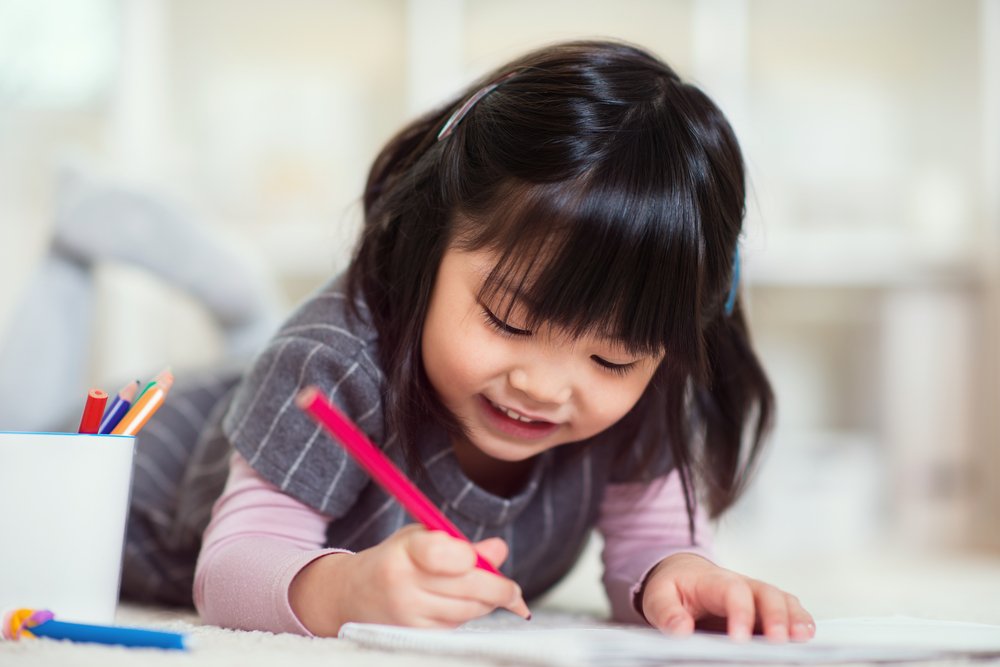Key points:
- Drawing can foster fine motor skills in children, while the act of drawing and related language skills can be a “great precursor for your little one’s future literacy skills,” according to a proposal by the New York State United Teachers.
- Asking questions about children’s drawings, complimenting the artwork and encouraging children to explain pictures in books can help boost language skills, memory and creativity.
- Drawing can also help children prepare for literacy activities in school and writing sentences. Progress can be tracked by saving and grouping drawings by theme to monitor improvement.
Drawing is a huge accomplishment for your little one. Plus, there are plenty of skills fostered by drawing, like holding crayons, scribbling, and eventually drawing straight lines. These, in the meantime, are contributing to your child’s acquisition and refining of fine motor skills. But these are not the only things they are working on, keep reading to learn more.
There’s a very interesting proposal from the New York State: United Teachers that suggests the use of a strategy called “The drawing and writing series”, which can be a great precursor for your little one’s future literacy skills. This technique can spark their interest in acquiring the necessary skills to communicate their ideas.
Long before they read or write, your child will express themselves through drawings and, at the very beginning, it might be complicated for you to understand them. According to the proposed technique, when your little one draws, they are imagining a whole story behind it. What can you do to make the most out of their drawings?
- Ask! When they excitedly approach and show you one of their drawings, ask questions about it. This will help them put everything she imagined while creating the drawing into words. This will foster their language skills, which will contribute to future conversation and storytelling skills. Moreover, it will impact their creative writing skills later on.
- Make them feel validated by complimenting their drawing and showing interest. This will strengthen your bond and foster their self-confidence to keep creating new stories.
- Foster their memory. As they explain their drawing, they’ll also use their memory, thinking skills, creativity, and imagination. This will entice their curiosity and make them wonder about other kinds of communication, like writing.
- Another way to entice these communication skills is by showing them the pictures on a book and have them explain the story. This is a great precursor of literacy that also boosts their imagination. Furthermore, it will encourage them to make connections between letters, words, and visual symbols, supporting their visual imagery and language skills.
Later on, the use of drawings in writing activities will be vast. When they start school, during creative writing activities, they will probably be asked to draw and imagine first, and then continue with a writing process. If you start doing this at home, you’ll practice the skills that will make them feel more comfortable when they are attending school, while also helping them find what is unique about their imagination. Soon enough, they’ll start writing sentences and answering all kinds of questions.
If you do this activity often, keep the drawings and order them by series so you have the chance to see the progress your little one has made. Plus, it can also be a conversational starter between you two or with the house visits that will want to know more about those beautiful works of art!








